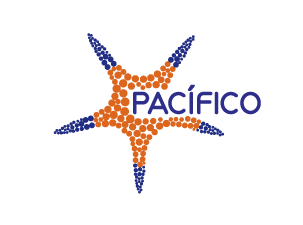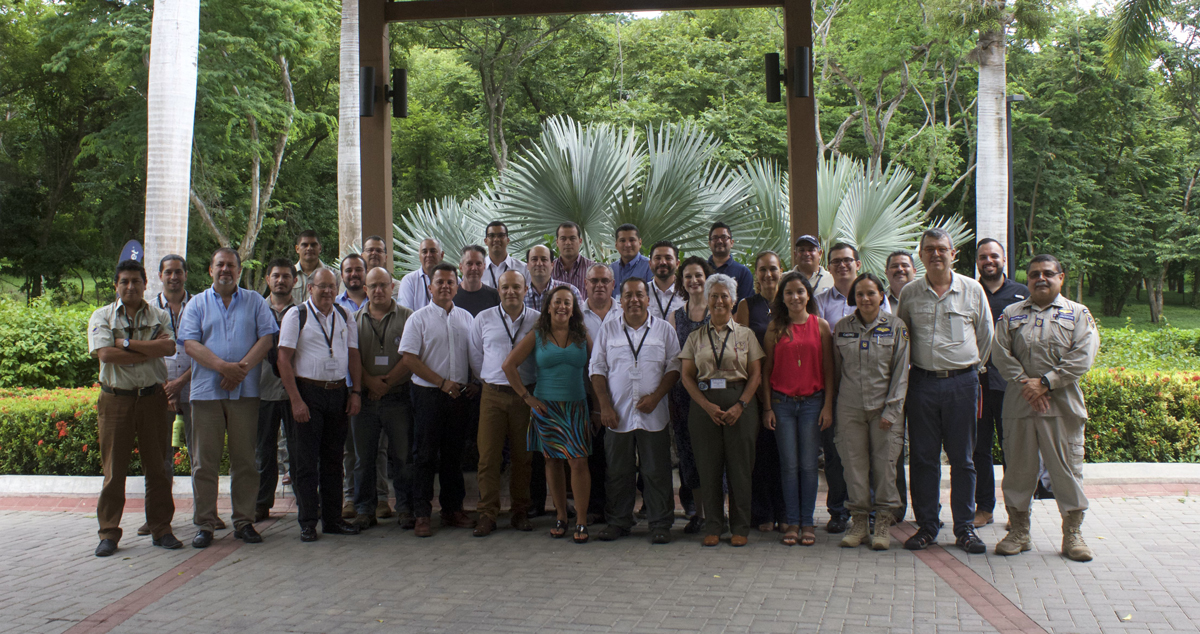- First meeting of Marine World Heritage Sites in the Eastern Pacific
- Participation of the ministers of the environment of Costa Rica and Ecuador, the Costa Rican minister of security and senior officials of countries in the region.
Guanacaste Costa Rica, 11 August 2017. From August 9 to August 17, representatives who direct one of their countries’ Marine World Heritage Sites, reaching from Revillagigedo Islands (Mexico) to Rapa Nui (Easter Island, Chile) have met in the Guanacaste Conservation Area. The sites also include El Vizcaino and Islands of the Gulf of California (Mexico), Guanacaste and Cocos Island (Costa Rica), Coiba (Panama), Malpelo (Colombia) and Galapagos (Ecuador).
This first meeting of Marine World Heritage Sites in the Eastern Pacific was organized by the PACIFICO Foundation, the ministry of environment and energy and the UNESCO Multicountry Office in Costa Rica in response to a request made by the ex-president of Ecuador, Rafael Correa, and the Costa Rican president, Luis Guillermo Solís, during the celebration of the signing of the maritime boundaries between Ecuador, Colombia and Costa Rica at the of 2016.
In this historic meeting, the presidents emphasized the need to go beyond making common maritime boundaries secure, considering it vital to work on new initiatives for the sustainable development of the Pacific Ocean.
Discussions were held on technical and scientific information to create greater security through a regional Control and Surveillance Strategy (Costa Rica, Panama, Colombia and Ecuador); to increase environmental benefits such as control of invasive species and protection of species in danger of extinction such as sea turtles, whales and sharks; and to develop socioeconomic benefits in the Pacific Ocean, for example, ensuring the maintenance and increase in commercial fish populations that fishing communities depend on. Guidelines were also proposed for the development of more projects of a regional nature.
For Minister of Environment and Energy Edgar Gutiérrez Espeleta, this meeting sought to bring attention to and promote good conservation practices in the Eastern Pacific region, focused on the management of the different UNESCO World Heritage Sites. It also aimed to strengthen the ties among the governments and strategic partners, such as the PACIFICO Foundation, to increase efforts in conservation of the exceptional universal value of these sites and the different activities carried out within and outside of these spaces.
According to Zdenka Piskulich of the PACIFICO Foundation, meetings such as this are highly important not only for the country but also for the region since marine species are not governed by geopolitical boundaries but use oceanic routes that cross the waters of various countries and areas of the high seas; therefore, she said, it is necessary to implement a joint strategy to protect them.
About 40 persons participated in this first meeting, coming from countries including Mexico, Costa Rica, Peru, Panama, Ecuador, Colombia, Chile, France and Switzerland.
CONSERVATION OF ECOSYSTEMS, BIODIVERSITY AND MARINE AND COASTAL RESOURCES
In parallel, taking advantage of this meeting, representatives of the members of the PACIFICO Fund, including Patrimonio Natural and Fondo Acción (both in Colombia), Fundación Natura (Panama) and the Forever Costa Rica Association (Costa Rica), also met with the Tropical Eastern Pacific Marine Corridor (CMAR) to work on implementation of the memorandum of understanding (ME) signed in June between the PACIFICO Foundation and CMAR.
The objective of the ME is to establish a strategic alliance to mobilize and implements resources in common geographic areas in order to help consolidate the integrated management of ecosystems, biodiversity and marine and coastal resources through their conservation and sustainable use, thus uniting the efforts being made by Colombia, Ecuador, Panama and Costa Rica in support of the Tropical Eastern Pacific.
About PACIFICO Foundation
The PACIFICO Foundation seeks to mobilize financial resources, manage them and increase an endowment fund to provide resources and financing for the implementation of actions directed to the conservation of marine-coastal resources of the Tropical Eastern Pacific (TEP). This initiative has been led since 2012 by four fund members: Patrimonio Natural (Colombia), Fondo Acción (Colombia), the Forever Costa Rica Association (Costa Rica) and Fundación Natura (Panama).[/vc_column_text][/vc_column][/vc_row]

